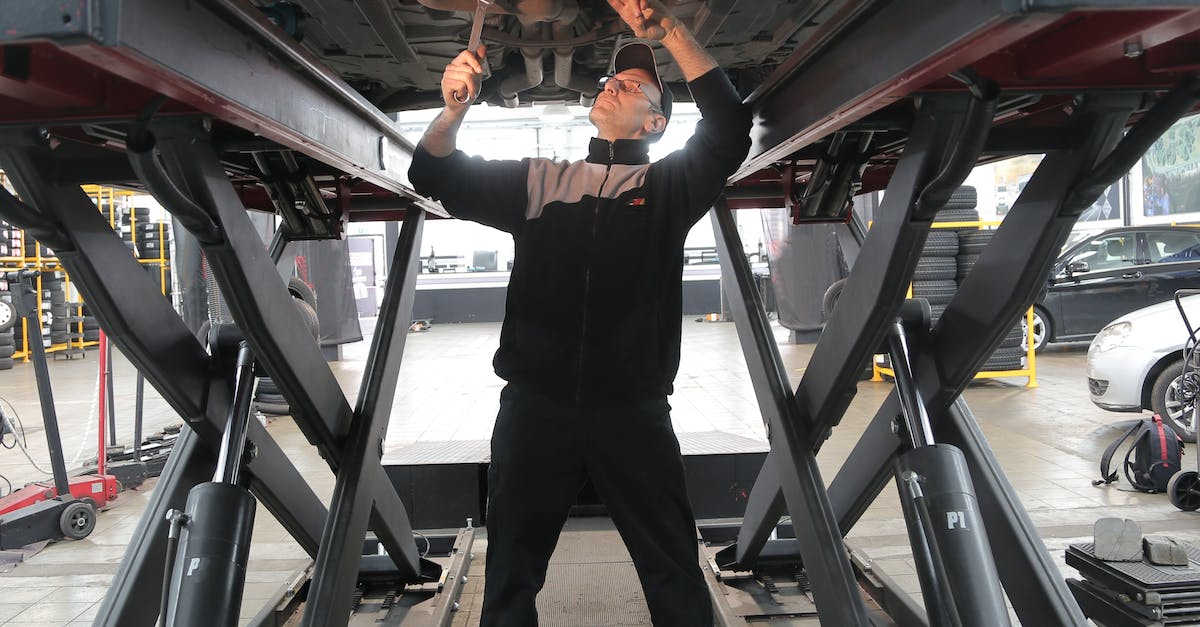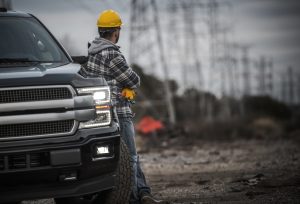Introduction
Definition of salvage and repairable cars
A salvage car refers to a vehicle that has been declared a total loss by an insurance company due to damage from an accident, natural disaster, or other incidents. These cars are typically sold at salvage auctions, where buyers can purchase them for a significantly reduced price. On the other hand, repairable cars are vehicles that have sustained damage but can be repaired and made roadworthy again. These cars may have been involved in accidents or have mechanical issues that require fixing. Both salvage and repairable cars offer opportunities for buyers to save money and potentially restore a vehicle to its pre-damaged condition.
Importance of understanding the legal aspects
Understanding the legal aspects of owning a salvage and repairable car is of utmost importance. It is crucial to have a clear understanding of the laws and regulations that govern the ownership and operation of such vehicles. This knowledge not only ensures compliance with the law but also protects the owner from potential legal issues and liabilities. By understanding the legal aspects, owners can make informed decisions regarding the purchase, repair, and sale of salvage and repairable cars. Additionally, being aware of the legal requirements allows owners to navigate the process of obtaining the necessary documentation and permits, ensuring a smooth and hassle-free experience. Overall, comprehending the legal aspects is essential for anyone considering owning a salvage and repairable car to ensure a lawful and secure ownership experience.
Overview of the article
In this article, we will provide an overview of the legal aspects of owning a salvage and repairable car. We will discuss the key considerations and regulations that individuals need to be aware of when purchasing and owning these types of vehicles. From understanding salvage titles and their implications to navigating insurance coverage and potential liability issues, this article aims to provide a comprehensive understanding of the legal landscape surrounding salvage and repairable cars. Whether you are a car enthusiast looking to restore a salvaged vehicle or someone considering buying a repairable car, this article will serve as a valuable resource to help you make informed decisions and navigate the legal complexities involved.
Title 1

Subheading 1.1
In the article, ‘The Legal Aspects of Owning a Salvage and Repairable Car’, Subheading 1.1 focuses on the requirements for obtaining a salvage title. When a car is deemed salvage, it means that it has been damaged to the extent that the cost of repairs exceeds its market value. To legally own a salvage car, certain steps must be followed. First, the owner must notify the Department of Motor Vehicles (DMV) about the salvage status of the vehicle. This involves submitting necessary documents, such as the salvage certificate and proof of ownership. Additionally, some states require a salvage inspection to ensure the car is roadworthy after repairs. It is important for owners of salvage cars to understand the legal obligations and procedures involved to ensure compliance with state laws and regulations.
Subheading 1.2
In the world of car ownership, salvage and repairable cars present unique legal challenges. Subheading 1.2 explores these legal aspects in detail. When purchasing a salvage or repairable car, it is important to understand the legal implications and responsibilities that come with it. One of the primary considerations is the title status of the vehicle. Salvage cars have been deemed a total loss by an insurance company, while repairable cars have sustained damage but can be fixed. Both types require specific documentation and may have restrictions on their use and resale. Additionally, salvage and repairable cars may require inspections and certifications to ensure they meet safety and environmental standards. Understanding the legal aspects of owning a salvage or repairable car is crucial to avoid potential legal issues and financial liabilities.
Subheading 1.3
In the world of car ownership, salvage and repairable cars present unique legal challenges. Subheading 1.3 delves into the legal aspects associated with owning such vehicles. These types of cars are typically damaged or declared a total loss by insurance companies due to accidents, natural disasters, or other incidents. While salvage and repairable cars can be a cost-effective option for some buyers, there are important legal considerations to keep in mind. For instance, depending on the jurisdiction, salvage cars may require a salvage title, which indicates that the vehicle has been deemed a total loss. Additionally, there may be specific regulations and requirements for repairing and re-registering salvage cars. It is crucial for owners of salvage and repairable cars to understand these legal requirements to ensure compliance and avoid potential issues in the future.
Title 2

Subheading 2.1
Subheading 2.1: Insurance Considerations
When it comes to owning a salvage and repairable car, insurance considerations play a crucial role. Insuring a salvage car can be more challenging compared to insuring a regular car. Insurance companies often have strict guidelines and may require a thorough inspection of the vehicle before providing coverage. Additionally, salvage cars may be deemed as higher risk due to their previous damage history. As a result, insurance premiums for salvage cars are typically higher. It is important for owners of salvage and repairable cars to research and compare different insurance options to find the best coverage that suits their needs and budget.
Subheading 2.2
In Subheading 2.2, we will discuss the legal aspects of owning a salvage and repairable car. When purchasing a salvage car, it is important to understand the laws and regulations that govern its ownership. In many jurisdictions, salvage cars are required to undergo a thorough inspection and obtain a salvage title before they can be legally driven on the road. Additionally, owners of salvage cars may be subject to stricter insurance requirements and may face limitations on where and how they can drive their vehicles. It is crucial for owners of salvage and repairable cars to familiarize themselves with the legal obligations and restrictions to ensure compliance and avoid potential legal issues.
Subheading 2.3
In Subheading 2.3 of the article titled ‘The Legal Aspects of Owning a Salvage and Repairable Car’, we delve into the legal implications of purchasing a salvage or repairable car. When considering buying such a vehicle, it is crucial to understand the potential challenges and risks involved. Salvage and repairable cars often come with a salvage title, indicating that they have been declared a total loss by an insurance company due to damage or theft. As a result, there may be restrictions on registering, insuring, and driving these vehicles, depending on the state or country. Additionally, salvage and repairable cars may require extensive repairs to make them roadworthy, and it is essential to comply with local laws and regulations when fixing and modifying these vehicles. Therefore, it is important to consult with legal professionals and thoroughly research the laws governing salvage and repairable cars before making a purchase.
Title 3

Subheading 3.1
Subheading 3.1: Insurance Considerations
When it comes to owning a salvage and repairable car, insurance considerations play a crucial role. Insurance companies often have specific policies and requirements for insuring these types of vehicles. It is important to understand the coverage options available and the potential limitations or restrictions that may apply. Additionally, it is advisable to research and compare insurance providers to ensure you find the best policy that meets your needs and budget. By doing so, you can protect yourself and your investment in a salvage and repairable car.
Subheading 3.2
Subheading 3.2: Insurance Considerations
When it comes to owning a salvage and repairable car, insurance considerations play a crucial role. Insurance companies typically have specific policies and guidelines for insuring salvage vehicles due to their unique nature. Before purchasing a salvage car, it is important to research and understand the insurance requirements and limitations. Some insurance companies may refuse to provide coverage for salvage vehicles, while others may offer limited coverage or require additional inspections and documentation. Additionally, the cost of insuring a salvage car is often higher compared to a regular car due to the increased risk associated with salvage vehicles. It is advisable to consult with multiple insurance providers to find the best coverage options and rates for your salvage and repairable car. By being aware of the insurance considerations, owners can make informed decisions and ensure their salvage car is adequately protected.
Subheading 3.3
Subheading 3.3: Insurance Considerations
When it comes to owning a salvage and repairable car, insurance is a crucial aspect to consider. Insuring a salvage car can be more challenging than insuring a regular car due to the higher risk associated with salvage vehicles. Insurance companies may have stricter requirements and higher premiums for salvage cars. It is important to research and compare insurance options to find the best coverage at an affordable price. Additionally, some insurance companies may offer specialized policies specifically tailored for salvage cars, providing comprehensive coverage for both repairs and liability. It is advisable to consult with insurance experts who have experience in insuring salvage vehicles to ensure proper coverage and protection.
Title 4

Subheading 4.1
Subheading 4.1: Insurance Considerations
When it comes to owning a salvage and repairable car, insurance is a crucial aspect to consider. Insurance companies have specific policies and requirements for insuring salvage vehicles due to their unique nature. Before purchasing a salvage car, it is important to research and understand the insurance options available. Some insurance companies may refuse to provide coverage for salvage cars, while others may offer limited coverage or require additional inspections. It is advisable to contact multiple insurance providers to compare their policies and premiums. Additionally, it is essential to disclose the salvage status of the vehicle when obtaining insurance quotes to ensure accurate coverage. Understanding the insurance considerations for salvage and repairable cars is essential for protecting your investment and complying with legal requirements.
Subheading 4.2
In Subheading 4.2, we will explore the legal aspects of owning a salvage and repairable car. When purchasing a salvage car, it is important to understand the legal requirements and implications. One key aspect is obtaining a salvage title, which signifies that the vehicle has been declared a total loss by an insurance company. Additionally, there may be specific regulations regarding the inspection and registration of salvage vehicles. It is crucial to comply with these requirements to ensure the legality and safety of owning a salvage and repairable car.
Subheading 4.3
In Subheading 4.3, we will discuss the legal requirements and considerations when owning a salvage and repairable car. It is important to understand that owning a salvage car comes with certain responsibilities and regulations that must be followed. One of the key aspects is obtaining a salvage title, which is a legal document that indicates the vehicle has been damaged and deemed a total loss by an insurance company. Additionally, salvage vehicles may need to undergo a thorough inspection to ensure they meet safety and emissions standards before they can be re-registered. It is crucial for owners of salvage and repairable cars to familiarize themselves with the specific laws and regulations in their state or country to ensure compliance and avoid any legal issues.
Title 5

Subheading 5.1
Subheading 5.1: Insurance Considerations
When it comes to owning a salvage and repairable car, insurance considerations play a crucial role. Insuring a salvage car can be a bit more challenging than insuring a regular car. Insurance companies may impose certain restrictions and higher premiums due to the increased risk associated with salvage vehicles. It is important for owners of salvage cars to understand the insurance policies available and the coverage they provide. Additionally, it is advisable to shop around and compare insurance quotes from different companies to ensure the best coverage at the most affordable rates. Taking these insurance considerations into account can help salvage car owners protect themselves financially and be prepared for any potential accidents or damages.
Subheading 5.2
In Subheading 5.2 of the article titled ‘The Legal Aspects of Owning a Salvage and Repairable Car’, we delve into the specific regulations and requirements associated with purchasing and owning a salvage or repairable car. These vehicles, which have been previously damaged or declared a total loss by insurance companies, come with their own set of legal considerations. It is crucial for potential buyers to familiarize themselves with the laws governing salvage and repairable cars in their jurisdiction to ensure compliance and avoid any legal issues. Additionally, understanding the process of obtaining a salvage title, the restrictions on operating salvage vehicles on public roads, and the potential liability implications is essential for responsible ownership. By addressing these legal aspects, individuals can make informed decisions when it comes to owning a salvage and repairable car.
Subheading 5.3
Subheading 5.3: Insurance Considerations
When it comes to owning a salvage and repairable car, insurance considerations play a crucial role. Insuring a salvage car can be more challenging than insuring a regular car due to its history of damage. Insurance companies may have stricter guidelines and higher premiums for salvage cars, as they are considered higher risk. It is important for owners of salvage cars to research and compare insurance options to find the best coverage at an affordable price. Additionally, owners may need to provide detailed documentation of the repairs and inspections the car has undergone to obtain insurance. It is recommended to work with an insurance agent who specializes in salvage cars to navigate the complexities of insuring these vehicles.
Title 6

Subheading 6.1
Subheading 6.1: Insurance Considerations
When it comes to owning a salvage and repairable car, insurance considerations are crucial. Most traditional insurance companies are hesitant to provide coverage for salvage vehicles due to the higher risk involved. However, there are specialized insurance companies that offer coverage specifically for salvage and repairable cars. It is important for owners to research and compare different insurance options to find the best coverage for their specific needs. Additionally, owners of salvage vehicles may be required to obtain a salvage title, which is a legal document that indicates the car has been previously damaged and repaired. This title may affect the resale value of the vehicle and should be disclosed to potential buyers. Overall, understanding the insurance considerations and requirements for owning a salvage and repairable car is essential to ensure proper coverage and compliance with legal regulations.
Subheading 6.2
In Subheading 6.2, we will explore the legal aspects of owning a salvage and repairable car. When purchasing a salvage car, it is important to understand the legal implications and requirements. Salvage cars are vehicles that have been declared a total loss by an insurance company due to damage from accidents, natural disasters, or other incidents. As a result, they may have a salvage title, which indicates that the car has been significantly damaged and repaired. The laws regarding salvage cars vary by state, so it is crucial to research and comply with the specific regulations in your area. Additionally, salvage cars may require additional inspections and certifications before they can be legally driven on the road. It is essential to familiarize yourself with these requirements to ensure compliance and avoid any legal issues. Owning a salvage car can be a cost-effective option for some, but it is important to navigate the legal aspects carefully to protect yourself and ensure a smooth ownership experience.
Subheading 6.3
In Subheading 6.3 of the article ‘The Legal Aspects of Owning a Salvage and Repairable Car’, we delve into the legal requirements for owning and operating a salvage or repairable car. It is important to note that these requirements may vary from state to state, so it is crucial to familiarize yourself with the specific regulations in your area. One key aspect to consider is the process of obtaining a salvage title, which is necessary for registering a salvage or repairable car. Additionally, insurance coverage for salvage vehicles may be different than for regular vehicles, so it is essential to consult with your insurance provider to ensure adequate coverage. Lastly, it is crucial to understand the restrictions and limitations that may apply to salvage and repairable cars, such as restrictions on resale or limitations on certain modifications. By being aware of the legal aspects, owners can navigate the complexities of owning a salvage or repairable car while staying compliant with the law.










